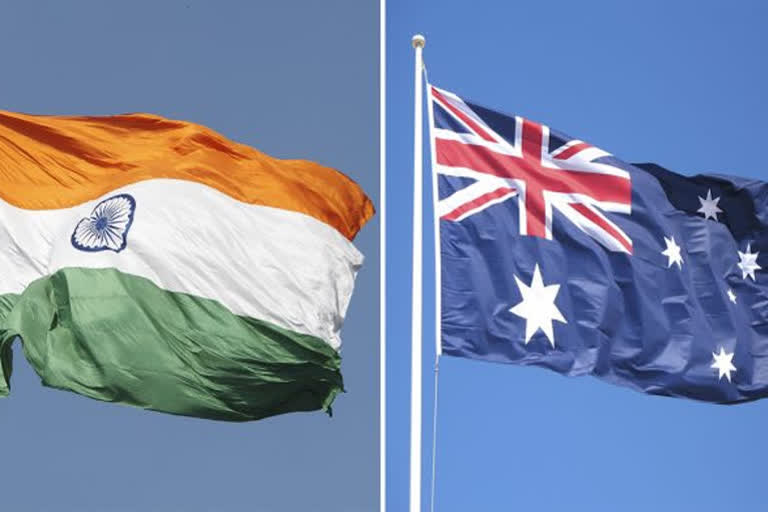New Delhi: India will be hosting the inaugural India-Australia 2+2 Ministerial Dialogue on Saturday in New Delhi.
Australia's Foreign Minister Marise Payne and Defence Minister Peter Dutton will visit India from September 10-12 to take part in the Dialogue.
Union Defence minister Rajnath Singh and External Affairs Minister Dr S. Jaishankar will lead India's delegation, which will comprise of officials from the respective ministries.
Speaking to ETV Bharat, former ambassador Jitendra Tripathi said, "India and Australia have strong maritime cooperation. India being an important partner of 'Quad', it is very natural that we have good ties with Australia. India has a lot of structured mechanisms with Australia like the foreign office consultations, strategic dialogue".
"We had a 2+2 dialogue with the US and Japan and now we are conducting 2+ 2 with Australia. So, India has held a 2+2 dialogue with all the three member countries of Quad which is very important for us because after the revival of Quad last year and after this year's summit, it has become very active. 'Quad' has severely discomforted China. Therefore, this is a new beginning with Australia and welcoming," the former ambassador said.
The inaugural 2+2 Ministerial Dialogue between the two countries was conceived at India-Australia Leaders’ Virtual Summit that was held in June last year. The summit envisioned boosting India-Australia bilateral relations, taking them to a Comprehensive Strategic Partnership, through the 2+2 Ministerial Dialogue.
The agenda for the dialogue will cover a range of bilateral, regional and global issues of mutual interest.
Also Read: India-Australia aim to announce breakthrough in trade negotiations by December 2021
What are '2+2' talks?
2+2 is a term adopted in foreign diplomacy that implies the highest-level institutional mechanism between the two countries. It is a format of dialogue where the defence/foreign ministers or secretaries meet with their counterparts from another country.
India has held similar talks with Japan and the US as well in the past.



